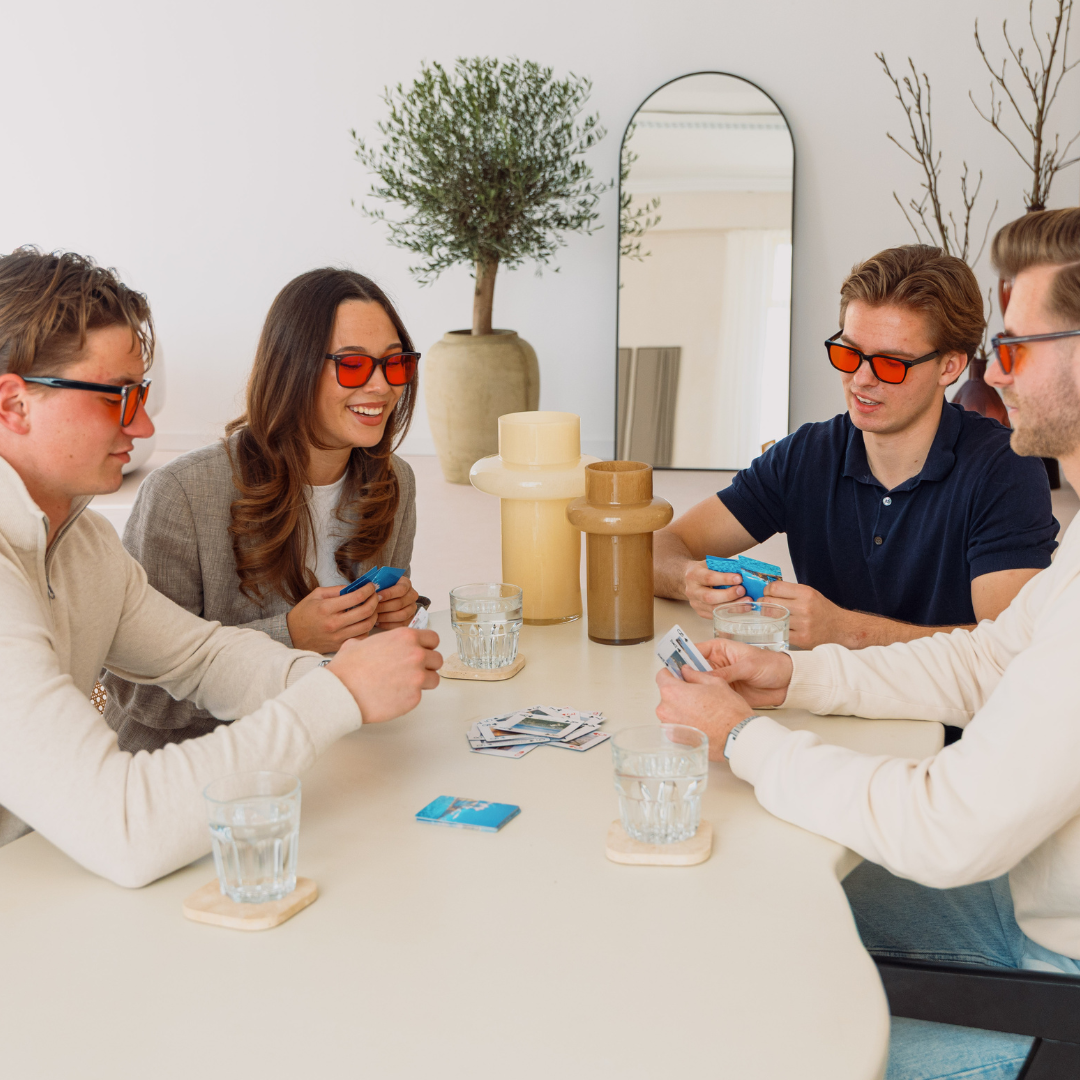The Importance of a Sleep Mask: Improving REM and Deep Sleep
A good night's sleep is essential for our physical and mental health. Sleep masks can play a significant role in improving sleep quality, especially in summer when the days are longer and there's more light. Sleep masks can also be helpful in winter, for example, when a partner gets up earlier or goes to bed later and turns on the light. Below, we discuss why a sleep mask is important and how it affects REM and deep sleep, supported by scientific research.
You often wake up briefly during sleep, though you often don't remember it. When light enters, your body starts producing cortisol, which can wake you up.
The Effect of Light on Sleep
Light is one of the most important factors influencing our biological clock and sleep-wake cycle. Exposure to light, especially blue light, inhibits the production of melatonin, a hormone essential for falling asleep and staying asleep. A sleep mask effectively blocks light, preventing disruption of melatonin production and improving sleep quality.
Improving REM and Deep Sleep
Sleep consists of several stages, including REM (Rapid Eye Movement) sleep and deep sleep. Both stages are crucial for recovery and cognitive function:
- REM sleep : This stage is important for processing emotions, consolidating memories, and fostering creativity. Research shows that disruptions in REM sleep can lead to mood disorders and impaired cognitive performance ( source ).
- Deep sleep : This is the recovery phase during which the body physically repairs itself, the immune system is strengthened, and growth hormones are released. Disruptions in this phase can lead to fatigue and a weakened immune system ( source ).
A sleep mask helps block out external light sources, which is especially important in the summer or in urban areas with abundant artificial light. This promotes an uninterrupted sleep cycle, including the REM and deep sleep phases.
Supported by Scientific Research
According to a study published in the Journal of Clinical Sleep Medicine, sleep is essential for health and well-being. Improving sleep quality by using aids like a sleep mask can contribute to better cognitive and physical health ( source ).
In addition, a review on the neurobiology of sleep emphasizes that external factors such as light directly influence brain activity during sleep. Using a sleep mask can minimize these influences and support natural sleep processes ( source ).
A 1999 study showed that children who slept with a nightlight or room light before the age of two had a higher risk of nearsightedness. Only 10% of children who slept in complete darkness developed myopia, compared to 34% with a nightlight and 55% with room light. The researchers emphasized the importance of a dark sleep environment for eye health.
Conclusion
A sleep mask is a simple yet effective solution for improving sleep quality. It blocks light, promotes melatonin production, and supports a healthy sleep cycle. This is especially important in the summer, but even in the winter, a sleep mask can help minimize disruptions from artificial light or a partner. Using a sleep mask can optimize both REM and deep sleep, leading to better health and well-being.





The whole story
This e-book discusses the impact of blue light on your health and how you can use it to your advantage. We often only hear about the influence of blue light on sleep, but that's just the tip of the iceberg. Blue light affects your biorhythm, gut health, metabolism, hormones , and much more. This document is designed to give you clear insight into what's really happening in your body and how you can achieve significant health benefits with a few smart choices.
Why?
At Alina, we believe that health starts with awareness. We want to inspire and inform you to take charge of your own well-being. Light is a powerful tool in this process. With this guide, we want to help you develop your own "light blueprint": a practical guide for a healthier, more vital, and more balanced life.
